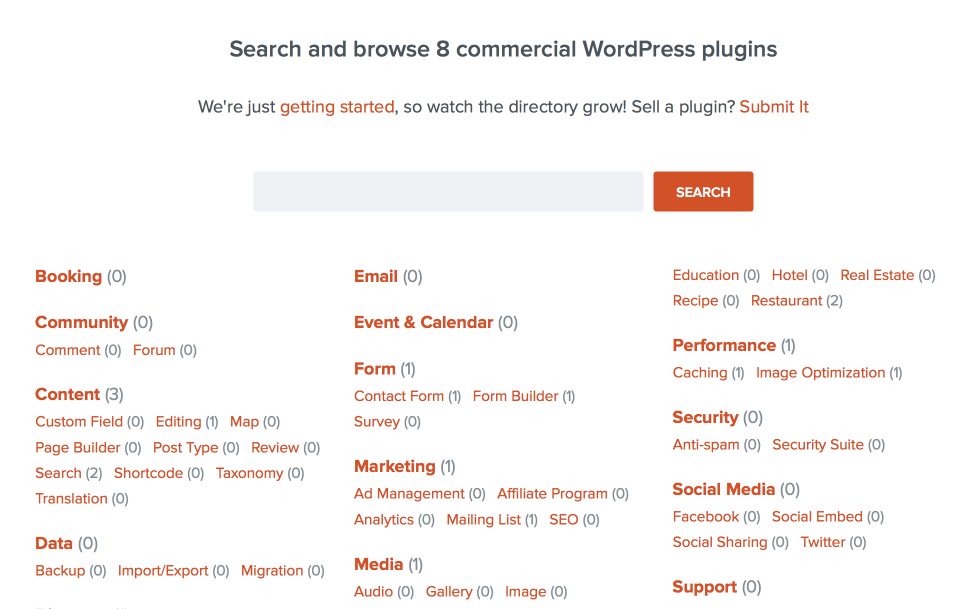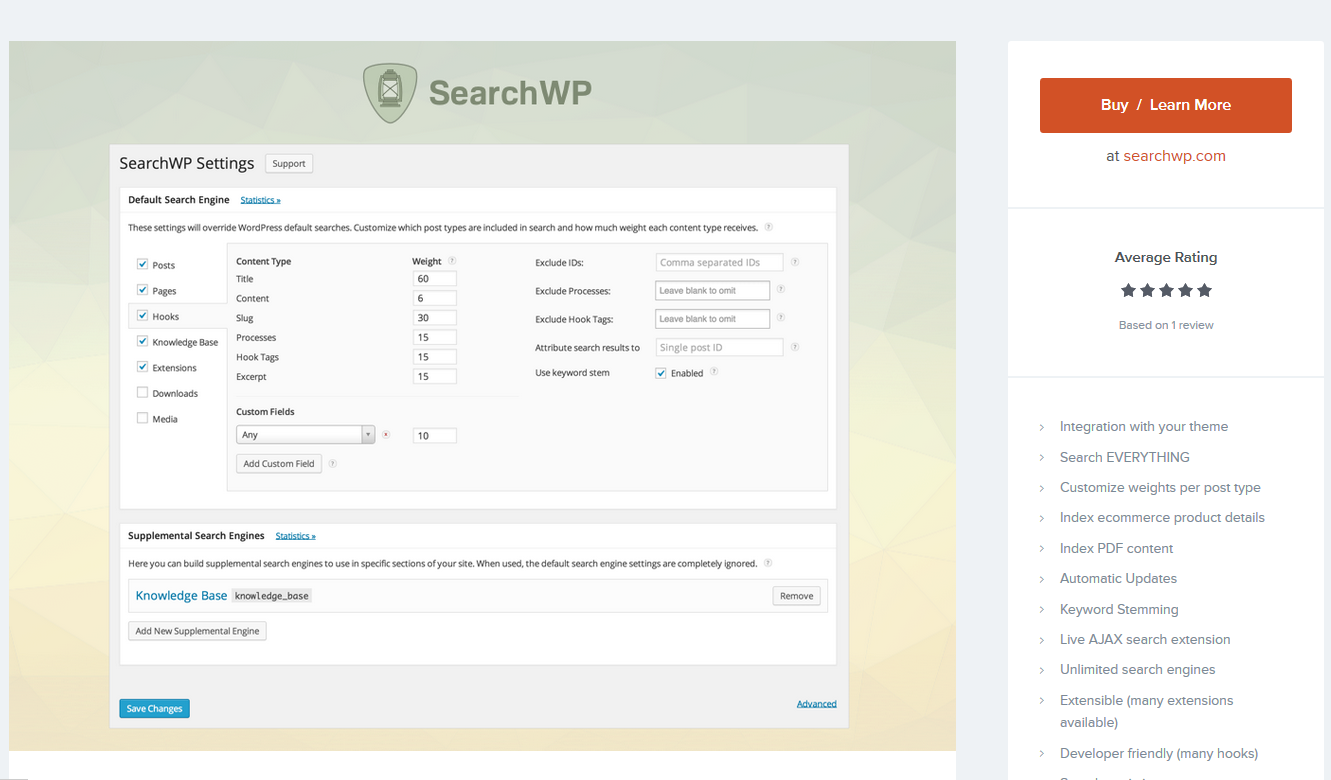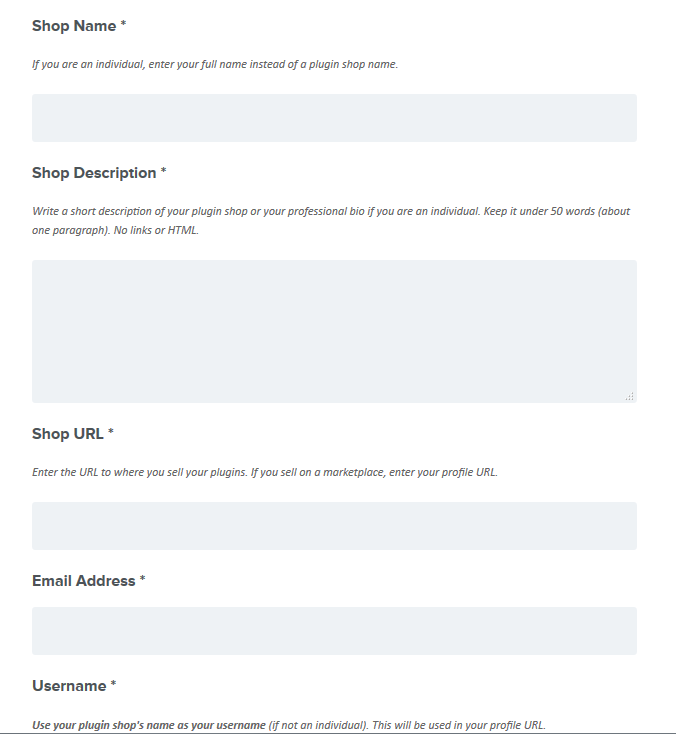More than 38k plugins are available for free on the WordPress plugin directory. While the theme directory has a category for commercial themes, the plugin directory does not.
When Matt Medeiros interviewed Matt Mullenweg earlier this year and asked if the plugin directory could turn into something similar to an app store, Mullenweg replied that the plugin directory will not turn into a market place or an app store and will never host commercial plugins. Outside of CodeCanyon, I’m not aware of any WordPress plugin directory that focuses on commercial plugins.
Introducing Pro Plugin Directory
Steven Gliebe who runs HostingReviews.io and is the founder of Churchthemes.com has launched the Pro Plugin Directory. The site lists commercial plugins from a variety of categories including, forms, performance, and security. Its design is based on a modified child theme of Checkout by ArrayHQ.

Gliebe created the site because he was frustrated that there was no resource for easily locating commercial WordPress plugins.
“Most of the time I do find what I need in the free directory. Sometimes though, I want to see what the commercial options are,” he said.
After asking several members of the community if such a site already exists, he came up empty. “I asked around and found that apparently there is no definitive Pro plugin directory as I suspected, so I thought I’d give it a go. WordPress is 12 years old and it’s beyond time to establish this.”
Monetization Strategy
Maintaining a directory can be hard work and without a way to be paid for the effort involved, interest can disappear quickly. Affiliate links are a natural strategy for the site while another is to sell upgraded listings.
His focus is getting the site established with as many listings as possible. “Right now, my focus is on building up the site and making it useful. If it proves to be successful in that respect then I’m sure there will be a reasonable way to turn a profit and take it to the next level,” Gliebe said.
Scalability
One of the largest obstacles of running a directory is scalability. In the case of Pro Plugin Directory, the submissions come directly from the plugin sellers. The Submission Guidelines have certain requirements to help ensure quality content.
“The original content they submit is in a sense their payment for being listed and gaining exposure. There surely is work to be done but it will not be as heavy as ThemeSorter or similar failed plugin and theme directory endeavors. I basically click approve or reject with the way it’s setup,” Gliebe said.

How Success will be Measured
Without monetizing the site up front and being a new resource within the community, Gliebe tells the Tavern what metrics he’ll use to measure success.
“Repeat visitors. If I see that people return to the site to find commercial plugin options then I’ll know that it is a go-to resource. I would also like to see search engine results for specific types of plugins return the free plugin directory at position number one and a Pro Plugin Directory category at number two, so that the user has a complete picture of his options readily available.”
The Directory is Useless Without Plugin Submissions
The directory won’t become what Gliebe envisions unless commercial plugin authors submit their plugins. “In order for these things to happen, the directory needs plugins. It needs a very wide selection of commercial WordPress plugins. I need the support of plugin authors above all.”
Although Gliebe is encouraged with the number of plugins already submitted to the site, he needs the directory to be the first thing people think of when searching for a commercial option.
“If it becomes a go-to place for plugin sellers to market their new plugins then it just might work. I figure, if they know about it, why wouldn’t they list their plugins? It’s free, it’s easy, and I’d do it myself before other, harder, marketing tactics.”

Does it Stand a Chance?
Creating a commercial plugin directory is not a new idea. Brad Touesnard founded the WordPress App Store which tried to be a commercial plugin directory while making it easier to browse and buy plugins. It didn’t attract the number of eyeballs needed to make the business sustainable and ultimately shut down.
If Gliebe can’t get the support of commercial plugin authors and find a way to get a large number of plugins into the directory within a year, it will likely suffer the same fate.
I would use it if they established an API for plugin developers to handle downloads. If I have to remember auth for a couple of sites to download updates, I’m going to stick with codecanyon instead for paid plugins.
Take that with a grain of salt though, as I’m pretty much trying to incorporate a sans-paid-plugin philosophy to my site builds. No ability to use package management, no ability to issue PRs to help fix bugs, and no ability to audit code before purchase generally make me avoid paid plugins now.